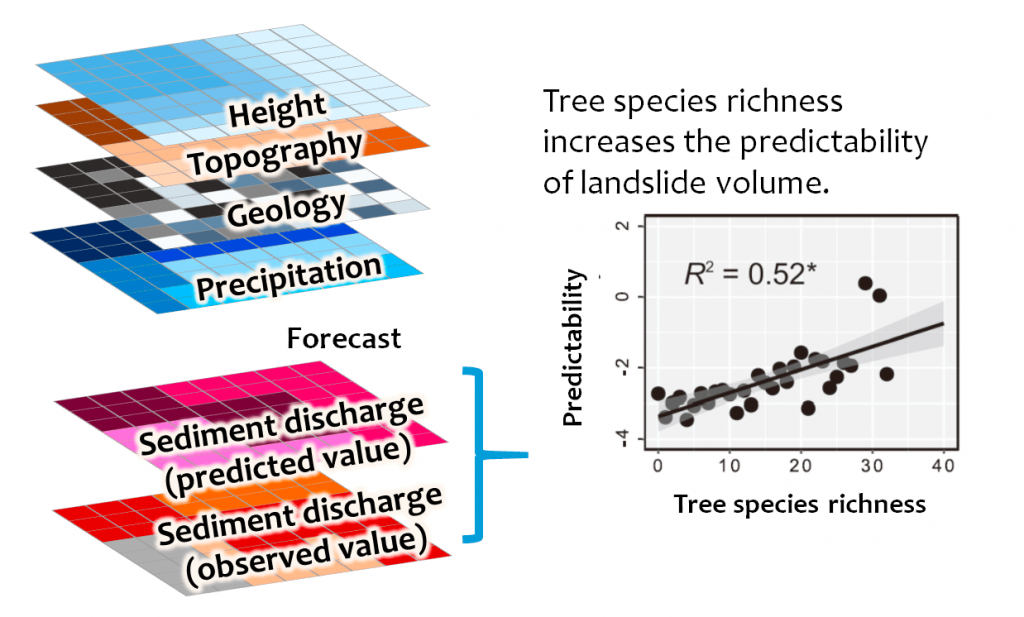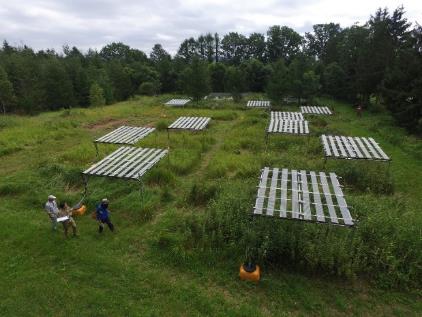Integrated Approach for Ecosystem-based Mitigation and Adaptation to Climate Change (Assoc. Prof. Akira S. Mori and Assoc. Prof. Takehiro Sasaki)
Ecosystems are fundamentally important to support numerous ecosystem functions and services, such as primary production, carbon sequestration, food provision and so on. Currently, naturally-functioning ecosystems are increasingly recognized to be important for stabilizing climate and mitigating its adverse impacts on society such as natural disasters. Therefore, conservation of ecosystems is considered as one of the most cost-effective approaches for climate change mitigation and adaptation – so-called, nature-based climate solutions. The approaches have multiple benefits to both society and nature and thus are currently gaining attention from different sectors including business and international policy. Ecosystems supported by biologically diverse organisms ensure the provisioning of numerous ecosystem services that are vital for humanity. The project is focusing on theoretical and empirical evidence of this ecosystem-based approaches to face with many socio-environmental issues in this era of global climate change.

Result: Precipitation control and ecosystem functions
- Assume drought once in 100 years in each region
- Drought experiments using the same protocol worldwide
Response assessment of future terrestrial ecosystems
Attending WS in Colorado


Sasaki et al. 2019, Journal of Ecology; Okada et al. in prep. ; Kondo et al. in prep.
Result: Biodiversity and sediment disaster risk
Tree species richness increases the predictability of landslide volume.

Kobayashi & Mori 2017, Environmental Management
Result: Impact of biodiversity on land use change
Estimate land use change rate from land use model → Detection of potential biodiversity hotspots

Kobayashi et al. 2019, Biological Conservation







